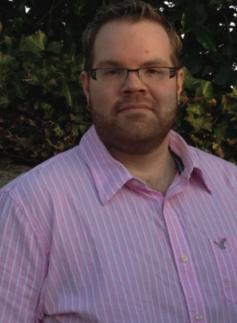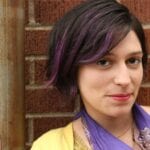The town of Barriere is 66 kilometres north of Kamloops, BC. Its population is less than 5,000. In 2009, gay Vancouverite Graham Brownmiller was told by superiors at the United Church to pack his bags and move there.
The new minister, then 28, wasn’t sure what to expect.
“We have this thing called settlement,” says Brownmiller. “So for my first posting [after theology school], the church decides where I go.” He was given a few options, “based on what the churches were looking for and what I was looking for.”
After graduating from Vancouver’s Simon Fraser University in 1999, Brownmiller entered the seminary program at Vancouver Theology School.
He says he was always aware when he decided to become a pastor it would likely mean a spell in “the wild,” but living in Barriere has still required some adjustment. “There’s some days where I feel like I’m a city guy,” he says. “But there’s other moments that make me think, ‘this is where I come from.’”
Barriere’s a decidedly unpretentious place. Each year the town hosts an annual fall fair and rodeo over Labour Day weekend. The town’s website says, “Some people say that living in Barriere is like living in a camping trip!”
Brownmiller has grown to love it. “You know, people here care about each other; they know each other,” he says. “It’s kind of funny — when I go places I’m known as the minister, even if they’ve never come to church.”
Brownmiller says his path to the ministry was fated. Raised in nearby Quesnel (population 9,915), he remembers attending church with his mother, Roberta. “She died when I was seven . . . I realize now when I look back that there was a deep call from an early age.”
In 1988, the year his mother died, the United Church of Canada approved the ordination of gay and lesbian ministers. Brownmiller says his mother was relieved about the decision.
“She knew I was gay,” Brownmiller says. “She knew I was destined for some work within the church.”
Brownmiller says he never had to come out of the closet in Barriere: it’s like the “gay thing” is common knowledge, he explains. Brownmiller holds an annual World AIDS Day service.
“I haven’t really done anything as an activist,” he says. “I’ve lived my life as an out gay man.”
However, Brownmiller says there is still homophobia. He recalls an incident that happened to a friend. “I have a colleague who lives in a small town not far from here who was getting harassing phone calls about being gay,” he says. “There wasn’t a whole lot of support. So I talked to people about that and said, ‘What would you do?’”
He was surprised by the response. “They said, ‘You’re one of us, you’re part of us, and we would be right there with you’
. . . In some ways, that’s activism, isn’t it?”
The benefits of living in a close-knit community can also pose a challenge.
“I’m ‘The Clergyperson’ as well, so . . . how I interact with people in the community and around town is really influenced by [that],” he says. “There are so many more boundaries that are put up.”
While Brownmiller has met other queer people in the area, he says they don’t tend to reach out with each other or organize. Feeling accepted as a gay man in a small church has its own complexities. “I think they’re open to having a gay man as a minister because I’m not in a relationship,” he says. “The minister — who was a lesbian — before me was in a relationship, but . . . her partner lived ‘away.’
“What would it actually be like to be a gay minister in a small town with a partner, as opposed to a celibate gay minister?” Brownmiller wonders.
At the same time, he says, people have been more open than he expected. “My communities are really open to talking with me . . . ‘Are you dating, are you seeing anyone?’” he says. “I laugh, because where am I going to do that?”
Brownmiller will soon have to decide if the benefits outweigh the obstacles: his three-year commitment to Barriere ends in June. “Do I feel like I need to stay here; do I need to move on, do something different?” he asks. “Most of it is about my own spiritual journey.
“There’s [a] really amazing community here that I am part of,” he says. “If and when I decide that it’s time to leave here, I will miss it.”


 Why you can trust Xtra
Why you can trust Xtra


